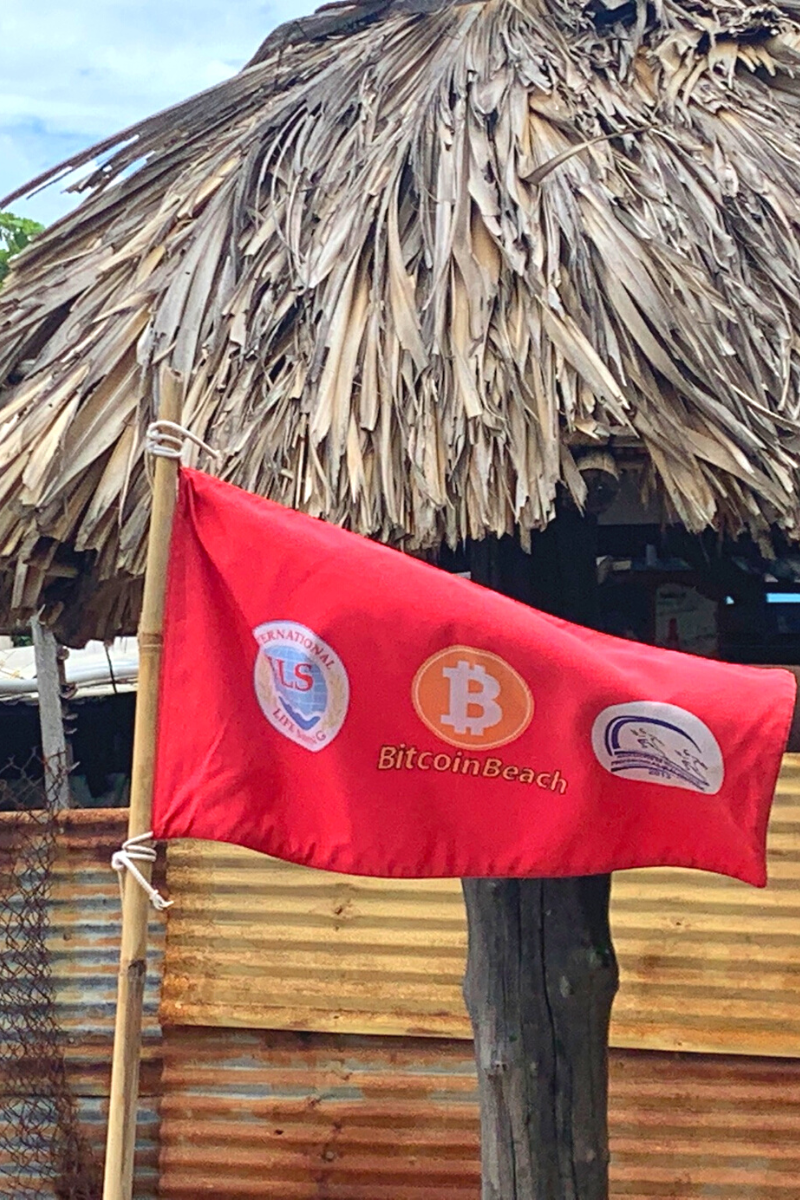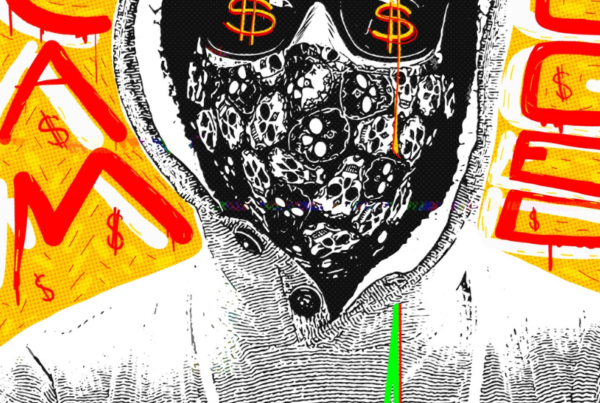EL ZONTE, El Salvador – Burrowed on the edges of El Salvador’s capital, dipped in iconic black volcanic ash and framed by gnarled mud roads and palm huts, adventurous surfers from all over the world cruise in and out of the warm waters.
But in recent years, this once impoverished surf village, El Zonte, has become much more than a little-known attraction exclusive to those willing to brave the rough tropical swells. Instead, it has earned the distinct moniker of “Bitcoin Beach.” Today, the mechanism behind such a revolutionary title emanates from an otherwise unremarkable dwelling skirted by wild jungle overgrowth embellished with the sign “Hope House.”
In June 2021, El Salvador’s President Nayib Bukele announced a bill to adopt the original cryptocurrency, Bitcoin, as the official legal tender (alongside the reigning U.S. dollar). The legislation, which mandated that “every economic agent must accept Bitcoin as payment when offered by whoever acquires a good or service,” was later passed by the Legislative Assembly, propelling the small Central American country of just 6.4 million into becoming a global first – and a country that many other countries would be watching with an eagle eye.
Bukele viewed the leap into the decentralized digital currency realm to salvage El Salvador’s burgeoning debt. After adopting the U.S. dollar in 2001 – parting ways with the Colón (SVC), the official currency from 1892 – the country quickly became saddled with loans and hamstrung by heavy controls. Furthermore, hundreds of thousands of already struggling El Salvadorans lost vast sums of money given the high bank transfer fees sent to them from abroad. And in a country where 23 percent of the gross domestic product (GDP) is remittances, that matters.

However, the dabble from the dollar to the digital was long coming.
Years earlier, Californian missionary/surfer/entrepreneur Mike Peterson supported the struggling El Zonte locals, chafed by poverty and few economic opportunities beyond recruitment into the infamous MS-13 or rival 18th Street gangs. Then came a more than $100,000 charity donation from an anonymous American donor – the only caveat was that it had to be paid in Bitcoin.
Beyond just aiding those in need, Mike saw the transformation this new form of money could make on the entire community of just three thousand people. In 2019, the concept of “Bitcoin Beach” – a project centered on creating a sustainable Bitcoin Economic ecosystem where most locals do not have access to bank accounts, and the local businesses could never qualify for merchant accounts needed to accept credit cards – was born.
“Years ago, it was very difficult to change dollars into Bitcoin, but that has all changed. We have created a real secular economy here, and the president sees that success,” Jorge Valenzuela, in his early thirties and one of the movement’s founders, tells me. “It used to be that we had no good tools here except for the waves. Now, young people can get educated and are starting all kinds of small businesses.”
However, when researching the issue, the first things that seemed to pop up exemplified avid concern from the international community that promoting encrypted, decentralized coins – backed by Blockchain technology – would only worsen transnational organized crime in an area skirted with gang violence. Analysts worried Bitcoin would only make it easy for criminal groups to move money without fees and detection. The likes of the International Monetary Fund (IMF) lamented that the legislative move “raises a number of macroeconomic, financial and legal issues.”
Nevertheless, a transformation away from traditional, centralized banking systems make most governments and government-supported entities like IMF nervous, given their inability to control the input and output. There are no gatekeepers, and money is moved entirely electronically, with no intermediary to take a cut and no authority figure to manipulate its value.
Sadly, murder and mayhem remain significant problems in El Salvador. Still, whether Bitcoin has contributed to that in any way, I cannot say with certainty on either side of the argument. Yet, Jorge contends that gangs still almost always do their dealings using cash. Norbel Michel, director of the Center for Data Analysis, agreed that paper U.S. dollars remain the banking style of choice for most criminal organizations. He also underscored that “using a public ledger and digital asset transfers leave a better trail for law enforcement than cash.” Every transaction is uploaded to the public ledger called the Blockchain and cannot be removed nor tampered with.
Nevertheless, what isn’t often highlighted in the press is that cryptocurrencies have provided young El Salvadorians with a whole other sphere of opportunity outside resorting to gang membership.
“With Bitcoin, we can teach them about money and saving long before that and give them opportunities, so they don’t join gangs or end up in prison,” Jorge continues.
He underscores that it is a supplement to the dollar, not an all-out replacement. Thus, those who prefer traditional methods are still welcome to trade in the fashion most comfortable to them.
Yet in a country where one cannot open their own bank account until the age of eighteen, and even then, some 70 percent of the country never does, youth can start small businesses and earn their keep in crypto with a Bitcoin Beach-sponsored job. This could involve picking up trash on the prized shoreline or doing chores for community elders in need.
In addition, the Bitcoin Beach project has spurred a unique tourism sector (who doesn’t want to buy a beer with Bitcoin?) and enabled many to save dramatically on commissions for remittances, along with providing access to a financial stream for those without bank accounts.
On that note, he says the adoption has provided many with a lease on life within their borders.
“Kids here can understand how to build a business and a better life with Bitcoin, so they don’t want to flee to the U.S. It will be the United States coming here. I started with Bitcoin years ago to help young people go to school, so they wouldn’t need to go to the U.S. border,” Jorge observes. “And the problem with laundering for a long time has been in U.S. dollars, so why is it suddenly different now?”
In addition to accepting cash and credit cards, dozens of businesses in El Zonte are now set up to accept Bitcoin payments, from dentists and cafes to car repairs and gas companies.
“So far, Bitcoin Beach has positively impacted the lives of more than 600 users, giving them the tools to set up wallets using Bitcoin (facilitated by the Lightning Network) for everything from buying a $1 bag of tortillas to paying for a $3 haircut,” the Bitcoin Beach website claims.
Of course, the challenges remain steep in extending the use of crypto across the developing country. Out of all twenty Latin American and Caribbean countries, El Salvador is second to Honduras for its lack of internet access. According to a 2020 study by Microsoft and the Interamerican Development Bank, less than half of the country’s population is connected, and in rural regions, only ten percent have internet connectivity.
The 2022 crypto price crash has also halted several of the government’s promised infrastructure projects, and many locals are deeply worried about the loss of precious funds. But Bitcoin Beach proponents remain adamant that there is more to this movement, and the many missions under its umbrella will survive the ups and downs.
During the COVID-19 pandemic, when many tourists’ hot spots crumbled, El Zonte thrived due to being able to pay for goods and services without physical contact, helping local businesses stay afloat, bolstered by Bitcoin’s then-soaring value.
“Our vision is to create a Bitcoin circular economy that includes remittances, tourism, public service, and small business. The village of El Zonte is only the beginning,” Bitcoin Beach founders’ state. “It is an ambitious vision, but we believe it is possible. We are creating jobs and other means to earn Bitcoins. We invite the Bitcoin community to visit and support the efforts.”











